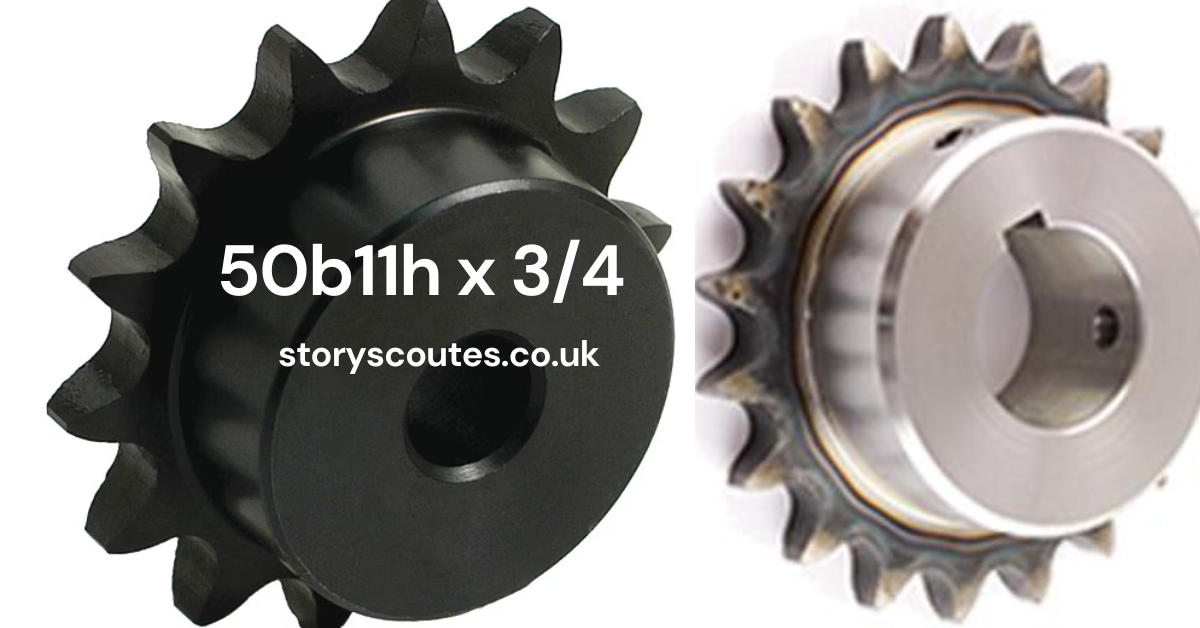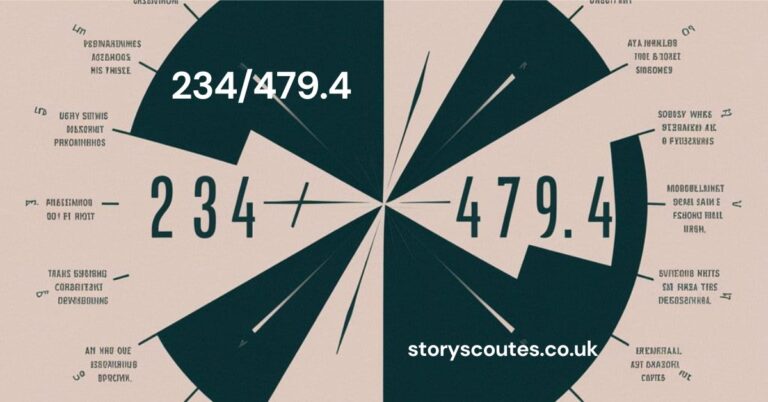50b11h x 3/4 – A Comprehensive Guide to Steel Specifications and Bolt Sizes
When it comes to construction, manufacturing, and engineering projects, understanding the materials and components you’re working with is crucial. One combination that often comes up in these fields is “50b11h x 3/4”. But what exactly does this mean, and why is it important? In this comprehensive guide, we’ll break down everything you need to know about 50b11h steel and 3/4-inch bolts, how they work together, and why this combination is significant in various industries.
What is 50b11h Steel?
50b11h is a type of steel with specific properties that make it suitable for certain applications. Let’s break down what each part of this designation means:
- 50: This number refers to the tensile strength of the steel, which is 50,000 pounds per square inch (psi) or 50 ksi.
- B: This letter indicates that the steel belongs to the “B” series, which typically means it contains boron as an alloying element.
- 11: This number represents the carbon content of the steel. In this case, it contains approximately 0.11% carbon.
- H: The “H” stands for “hardenability,” suggesting that this steel can be heat-treated to increase its hardness and strength.
Key Properties of 50b11h Steel:
- Tensile Strength: 50 ksi (345 MPa)
- Yield Strength: Approximately 30 ksi (207 MPa)
- Composition: High carbon content with alloying elements, including boron
Applications of 50b11h Steel:
Due to its strength and hardenability, 50b11h steel is commonly used in:
- Automotive components
- Agricultural machinery
- Construction equipment
- Fasteners and bolts
Understanding 3/4-inch Bolts
Now that we’ve covered the steel specification, let’s look at the “3/4” part of our combination. This refers to the diameter of a bolt, which is three-quarters of an inch.
Key Features of 3/4-inch Bolts:
- Diameter: 0.75 inches (19.05 mm)
- Common thread patterns: UNC (Unified National Coarse) and UNF (Unified National Fine)
- Typical lengths: Range from 1 inch to 6 inches or more
Applications of 3/4-inch Bolts:
These bolts are widely used in:
- Heavy machinery assembly
- Structural steel connections
- Automotive suspension systems
- Industrial equipment
The Significance of 50b11h x 3/4 Combination
When we see “50b11h x 3/4” together, it typically refers to a bolt made from 50b11h steel with a 3/4-inch diameter. This combination is important for several reasons:
- Strength: The 50b11h steel provides high tensile strength, making it suitable for applications that require strong fasteners.
- Size: The 3/4-inch diameter offers a good balance between strength and weight, making it versatile for various applications.
- Hardenability: The “H” in 50b11h indicates that these bolts can be heat-treated to increase their hardness and durability.
- Standardization: This combination represents a standardized specification, ensuring consistency across different manufacturers and suppliers.
Advantages of Using 50b11h x 3/4 Bolts
- Durability: The high-strength steel and substantial diameter make these bolts resistant to wear and tear.
- Versatility: They can be used in a wide range of applications, from automotive to construction.
- Reliability: The standardized specifications ensure consistent performance across different projects.
- Cost-effectiveness: While not the cheapest option, their durability can lead to long-term cost savings by reducing the need for frequent replacements.
Comparing 50b11h x 3/4 to Other Bolt Types
To better understand the significance of 50b11h x 3/4 bolts, let’s compare them to some other common bolt types:
- Grade 5 Bolts:
- Tensile strength: 120 ksi
- Made from medium carbon steel
- Less expensive but lower strength than 50b11h
- Grade 8 Bolts:
- Tensile strength: 150 ksi
- Made from medium carbon alloy steel
- Higher strength but more expensive than 50b11h
- Stainless Steel Bolts:
- Tensile strength varies (typically 70-100 ksi)
- Excellent corrosion resistance
- More expensive than 50b11h
- Titanium Bolts:
- Very high strength-to-weight ratio
- Excellent corrosion resistance
- Significantly more expensive than 50b11h
While each of these bolt types has its advantages, 50b11h x 3/4 bolts offer a good balance of strength, cost, and versatility for many applications.
Manufacturing Process of 50b11h x 3/4 Bolts
Understanding how these bolts are made can help you appreciate their properties and quality. Here’s a simplified overview of the manufacturing process:
- Raw Material Preparation: The 50b11h steel is produced and formed into long rods or bars.
- Cutting: The steel is cut into smaller pieces, slightly longer than the final bolt length.
- Heading: The cut pieces are heated and formed into the basic bolt shape, including the head.
- Threading: The bolt shaft is machined to create the threads.
- Heat Treatment: The bolts undergo a heat treatment process to enhance their strength and hardness.
- Finishing: Any final treatments, such as plating or coating, are applied.
- Quality Control: The bolts are inspected to ensure they meet the required specifications.
Installation and Usage Guidelines for 50b11h x 3/4 Bolts
Proper installation is crucial to ensure the effectiveness and safety of these bolts. Here are some general guidelines:
- Hole Size: Ensure the hole is slightly larger than the bolt diameter (typically 13/16 inch for a 3/4-inch bolt).
- Torque: Apply the correct torque according to the manufacturer’s specifications. Over-tightening can lead to bolt failure.
- Lubrication: Use appropriate lubricants on the threads to ensure proper tightening and prevent galling.
- Washers: Use hardened washers to distribute the load and protect the surface being bolted.
- Regular Inspection: Periodically check the bolts for signs of wear, corrosion, or loosening.
Maintenance and Care of 50b11h x 3/4 Bolts
To ensure the longevity and performance of these bolts, consider the following maintenance tips:
- Regular Cleaning: Remove dirt and debris that could lead to corrosion.
- Lubrication: Periodically apply a suitable lubricant to prevent rust and ease future removal if necessary.
- Retightening: Check and retighten bolts as needed, especially in applications subject to vibration.
- Replacement: Replace bolts that show signs of significant wear, corrosion, or damage.
- Proper Storage: Store unused bolts in a dry, clean environment to prevent corrosion.
Environmental Considerations
As sustainability becomes increasingly important, it’s worth considering the environmental impact of 50b11h x 3/4 bolts:
- Recyclability: Steel is highly recyclable, making these bolts an environmentally friendly choice compared to some alternatives.
- Durability: Their long lifespan means fewer replacements and less waste over time.
- Energy Efficiency: The manufacturing process for steel bolts is generally more energy-efficient than that of some exotic materials like titanium.
- Alternatives: In some cases, alternative materials or fastening methods may be more environmentally friendly, depending on the specific application.
Future Trends and Innovations
The world of fasteners and materials science is constantly evolving. Here are some trends that may impact the future of 50b11h x 3/4 bolts and similar products:
- Advanced Coatings: New coatings may enhance corrosion resistance and reduce the need for maintenance.
- Smart Fasteners: Integration of sensors to monitor bolt tension and integrity in real-time.
- Lightweight Alternatives: Development of high-strength, lightweight materials that could compete with traditional steel bolts.
- 3D Printing: Additive manufacturing techniques may allow for custom bolt designs and rapid prototyping.
- Nanotechnology: Incorporation of nanoparticles to enhance the properties of steel and other bolt materials.
Conclusion
The 50b11h x 3/4 combination represents a specific type of steel bolt that offers a balance of strength, durability, and versatility. Understanding its properties, applications, and proper usage is crucial for engineers, contractors, and DIY enthusiasts alike. As materials science and manufacturing techniques continue to advance, we may see new innovations that build upon or even replace this classic specification. However, for now, 50b11h x 3/4 bolts remain a reliable and widely used fastener in various industries.
FAQs about 50b11h x 3/4
What does 50b11h mean in steel specification?
50b11h is a steel grade where 50 indicates the tensile strength (50 ksi), B suggests it contains boron, 11 represents the carbon content (0.11%), and H stands for hardenability.
How strong is a 3/4-inch bolt made from 50b11h steel?
A 3/4-inch bolt made from 50b11h steel has a tensile strength of 50,000 psi (50 ksi) and a yield strength of approximately 30,000 psi (30 ksi).
What are common applications for 50b11h x 3/4 bolts?
These bolts are commonly used in automotive components, agricultural machinery, construction equipment, and various industrial applications.
How do 50b11h x 3/4 bolts compare to Grade 8 bolts?
Grade 8 bolts have a higher tensile strength (150 ksi) compared to 50b11h bolts (50 ksi), but 50b11h bolts may be more cost-effective for applications that don’t require such high strength.
Are 50b11h x 3/4 bolts suitable for outdoor use?
While 50b11h steel has good strength properties, it may require additional corrosion protection (such as galvanization or coating) for prolonged outdoor use.
How should I maintain 50b11h x 3/4 bolts?
Regular cleaning, lubrication, periodic tightening checks, and replacement of damaged bolts are key maintenance practices.
Can 50b11h x 3/4 bolts be recycled?
Yes, like most steel products, these bolts are recyclable, making them an environmentally friendly choice.
What is the proper torque for a 50b11h x 3/4 bolt?
The proper torque depends on the specific application and bolt grade. Always consult the manufacturer’s specifications or an engineering guide for the correct torque values.
Are there alternatives to 50b11h x 3/4 bolts for high-strength applications?
Yes, alternatives include Grade 8 bolts, stainless steel bolts, and titanium bolts, each with their own strengths and weaknesses depending on the application.
How do I know if a bolt is made from 50b11h steel?
Bolts are typically marked with their grade or material specification. However, for definitive identification, you may need to consult the supplier or perform material testing.






